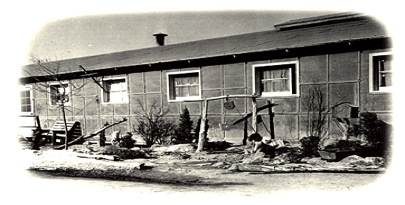 myCSUSM
myCSUSMUnit 2, Lesson 1: Reading for Understanding
This first long term lesson involves the reading of the book, Journey to Topaz, by Yoshiko Uchida. Multiple reading, speaking and listening standards can be met through the use of a Concept Analysis resource, discussion circles, and journal writing. Specific standards can be used as a focus from the anchor standards and for Grades 6-12, and Reading Standards for Literacy in History/Social Studies 6-12. Some ideas and resources are suggested in order for students to meet these standards.
DOWNLOAD THIS LESSON PLAN AS A PRINTABLE PDF
Materials & Resources Needed
- Books: Journey to Topaz, Yoshiko Uchida
(Grades 9–12 should consider many of the same learning activities using Return to Manzanar, Houston and Houston) - Writing Journals (PDF)
- Reading Guide (PDF):
Teacher’s overview of main themes of the novel
Essential Questions / Issues
- What is justice?
- Is civil disobedience ever justified? Explain.
- In what ways to people react to race and differences between one another?
Objectives
- Students will read Journey to Topaz and make logical inferences, cite specific evidence, and support conclusions from the events in the book.
- Students will determine central theme of fear, and support their understanding with details and analysis of events over time.
- Students will address craft and structure by interpreting language, analyzing structure of the text, and assessing how point of view shapes the content of this text.
- Students will evaluate the content verbally, and in written form through journals.
- Students will evaluate and provide arguments for the reasoning of some of the action taken in the text, including the sufficiency of evidence in the form of primary sources provided.
Assessment
These objectives will be assessed formatively through teacher observation of small and large group discussion, and analysis of journal entries. Summative assessment takes place through argument writing and reflections throughout the unit.
| Quality Criteria | Absolutely | Almost | Not Yet |
|---|---|---|---|
| Active and productive engagement in discussion with ability to analyze specific evidence and support conclusions | |||
| Determines central theme with support and analysis of events | |||
| Interprets language and analyzes structure of text and how it shapes content | |||
| Evaluation of content verbally and through journals, providing arguments for action taken in the text including how they relate to presented primary sources |
Learning Activities
HOOK
Ask the students to close their eyes and imagine someone coming into the classroom right now and telling us we had to leave the school. Room [NUMBER] is not a class at our school that is to be trusted. We will have to go to the cafeteria until the principal decides what to do with us. We are considered a threat to the rest of the school because we are all members of room [NUMBER]. We can only leave with a few items; there is no room for our books or our class (lizard, or whatever). We may not take any of our projects.
Ask students how this would make them feel? After some discussion, ask the students if they have ever heard of a Japanese Internment Camp? Tell them that if they do not know now, they will be discovering much more about internment camps and an event worse than what we just imagined truly happened in California, very close to home, through the reading of this book.
READING, DISCUSSION & JOURNAL WRITING
As you provide time for reading, discussion and journal writing (PDF), the Reading Guide (PDF) provided may be helpful for Journey to Topaz to help guide questioning, and lead students to an understanding of the learning objectives.
PRIMARY SOURCES
Use primary sources such as those below to enhance reading discussion — they are actual photos of the internment camp, portrayed in the story and can add considerably to understanding. topazmuseum.org provides facts, history, interactive map, museum of camp.
Examples of some of the primary sources available:

Gardens were a means of maintaining some semblance of normalcy.

Internees arrive at Topaz with what they could carry.
CLOSURE
Each day of reading review, themes from reading should be reinforced.
The following Ted Talk video is an interesting way to wrap up and summarize the experience of the Japanese internment, and hear the feelings of one who was interned. George Takei Ted Talk, “Why I love a country that once betrayed me”
Special Needs of Students Are Considered
Differentiation can be addressed by varying the process for reading, i.e.: partner-reading, small group teacher-led, book clubs. Gifted and high achievers may read ahead, and/or read Return to Manzanar or another accompanying book on the same topic.
References
- College and Career Readiness State Standards for Reading
- Suggested K-12 Pathway for College, Career, and Civic Readiness
- Free Library of Philadelphia’s One Book Lesson Plans and Resources for Journey to Topaz (PDF)






